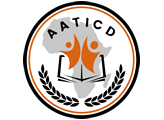Why Attend
This program provides students with exposure to a wide spectrum of substantive and procedural labor law. It offers practical knowledge in the areas of acquisition, analysis, interpretation and an understanding in areas of industrial relations and CCMA practice.
Course Methodology
The course uses a mix of interactive techniques such as change readiness assessments, team exercises, case studies, individual exercises, as well as role-plays (rehearsed and impromptu), videos and group feedback.
Course Objectives
By the end of this training program, participants will be able to;
- Appreciate the principles of social justice and ethics in labor law in South Africa
- Demonstrate a clear understanding of the general principles related to South African labor legislation
- Demonstrate a knowledge of the relevant labor legislation governing labor relations in South Africa
- Demonstrate an understanding of the principles and applicability of Substantive Labour Law in South Africa
- Demonstrate an understanding of the principles and applicability of procedural labor law in South Africa
- Demonstrate an understanding of the labour law amendments
- Display an understanding of dismissals and unfair labor practices
- Display an understanding of conciliation, mediation, and arbitration
- Demonstrate an understanding of the place of evidence in labor law
Target Audience
The course is suitable for anyone interested in Labour Dispute Resolution and CCMA Practice, including lawyers, advocates, managers, union members and leaders, human resources managers, and employees at the CCMA
Target Competencies
- Social justice and ethics in labor law
- Substantive labor law
- Procedural labor law
- Dismissals and unfair labor practices
- Conciliation, mediation, and arbitration
- Evidence
Location:
South AfricaTraining Dates:
Each course starts every Monday of each week. Please book your training on a date that is a Monday.Course Duration:
Unit Standard:
NQF Level:
Number of Credits:
Course Fees
Note: Please fill in the online application form on the left or bottom if this page to receive a quotation with detailed pricing from AATICD.How to Apply:
To Apply Simply Fill in the Online Enquiries / Applications form on the Right Sidebar or Bottom of this website https://www.aaticd.co.zaNB:
When filling the online application form; please take note of your desired Training Month, Duration in Weeks and Training Session. This will give us the exact dates you will be attending your classes.Also note that Tuition Fees must be paid upfront on or before training start date. This is to ensure that all resources are made availabe for you before you start. You will not be allowed into training if fees are not paid and verified.
Also note that Tuition Fees Cancellations must be made 14 business working days before the starting date of training. This will allow us to do a 50% refund of the total amount paid. If cancellations are made thereafter note that no refund will be made to delegates.
Tuition Fees include teas and lunch as well as either a laptop or tablet which a delegate will take home free of charge.
Tuition Fee DOES NOT include Accommodation, Dinners and other Extra Curricular Activities or Incidentals. Delegates are expected to fund this on their own. AATICD will not be held accountable for any incidents to delegates.
In-House Trainings are also available for 3 or more delegates for any duration. Please consult with our Administration for such In-House training bookings.
Course Outline
Introduction
- CCMA Forms
- CCMA Arbitration Guidelines
- Condonation Application – Unfair Labour Practice
- Employment and Independent Contractor
- Insolvency and Liquidation
- Application about demarcation dispute
Sub-Standard Performance Management
- Setting Performance Standards
- How to Measure Performance
- Counseling as a mean for performance improvement
- Discipline & Dismissal
Discipline & Disciplinary Action
- Employment Issues
- Automatic Dismissals
- Recruitment
- Employment
- Contracts Temporary
- Distinction Independent Contractors vs Employees
- Termination of Employment & unfair Labour Practice
- Grievance Policies
- Codes of Conduct & Company Policies & Procedures
- Unfair Dismissals & Discrimination
- Procedures for, Grievances, Discipline & Retrenchment
- Affirmative Action (Employment Equity)
- Conditions of Service
- Time & Leave Issues
Disciplinary Hearings
- Responsibilities & Roles
- How to deal with Appeal
- Performing an Investigation
- Fair Procedure and Evidence
- Disciplinary Standards & Norms
- Evidentiary matters
- Mitigating and Exacerbating Factors
- Maintaining Records
- Planning for Hearings
Arbitration Hearings
- Arbitration Awards
- Review of Awards
- Settlement Agreements
- Labour Legislation & Basic Conditions of Employment Act
- The Occupational Health & Safety Act
- The CCMA, Bargaining Councils & The Labour Court
- Anticipated amendments to Labour Legislation And much more!
Dispute Resolution
- Conciliation & Arbitration
- Preparation for Arbitration
- Industrial Relations Negotiations
- Union Negotiation, Wage Negotiation & Collective Agreements
- Strikes, lockouts and Protest Action
- The Labour Relations Act
- Trade Unions & the role of Shop Stewards
- Trade unions, their functions, and structures




